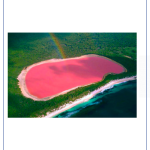Polling the population for their opinions and views has a long history. But are we most informed by the opinions categorized by race and gender, or might we learn more by viewing thoughts among like-minded individuals – like birds of a feather? A new study suggests how we consider how we cluster and flock.
Other Science News
The big news for Chernobyl watchers was learning that Russian forces packed up and left – with several news sources claiming that some Russian troops had developed acute radiation sickness (ARS) and one article claiming at least one had died. The Ukrainian government has contacted the International Atomic Energy Agency (IAEA) about returning the plant to regulatory controls, which is a good thing. But there’s still that nagging question – did the Russian troops really get radiation sickness?
Operation Warp Speed, everyone loves watching a controlled building demolition, know your adversary, and social media and the “slap heard round the world.”
How many of you have read any of the user agreements we have with Google or Facebook? Neither have I. Why are legal contracts so “notoriously difficult for non-lawyers to understand?” A new study in Cognition provides some clues.
Virtue signaling, how deadly are the new variants, Metaverse?, and medicine is an art.
There is no doubt that inflation is upon us. The oldsters among us remember the bad old days, 13% mortgages. But as with any economic stress, it falls unevenly. Elaine Schwartz from Econlife shows the problem in two graphs, courtesy of the New York Times.
Lake Hillier is anything but usual. The Australian lake is 10 times saltier than the ocean, and bright pink. The color comes from the microorganisms that, somehow, are able to thrive under the harshest of conditions, because of the pink. It's no accident. Nature figured out how to use chemistry to defeat the sun.
A contrarian view of microplastic in our oceans, upcoming elections seem to be settled at primaries, not the general, and China clamps down on algorithms. Will that become our law too?
MIT’s first female student and professor, why nutritional studies go awry, a Carl Sagan Moment, and “clandestine” Chinese scientists and our northern neighbor.
Communication is a two-way street – what the speaker is sharing and what the listener hears. Twitter keeps our communications brief, sharing thoughts, not fully formed ideas. I’ve written about what we hear on several occasions, but a new study looks at what is being said by journalists and how that differs greatly from what they write.
Explaining a paradox of science, let nature bury the excess carbon, Power, and letting go – at least of our notes.
The Russian invasion of Ukraine has led to what's been described as heavy fighting at the site of the Chernobyl nuclear power station, near the Ukraine-Belarus border. There have also been reports of rising radiation levels in some places, and concerns about possible damage to the entombed reactor that was damaged in the 1986 accident.











